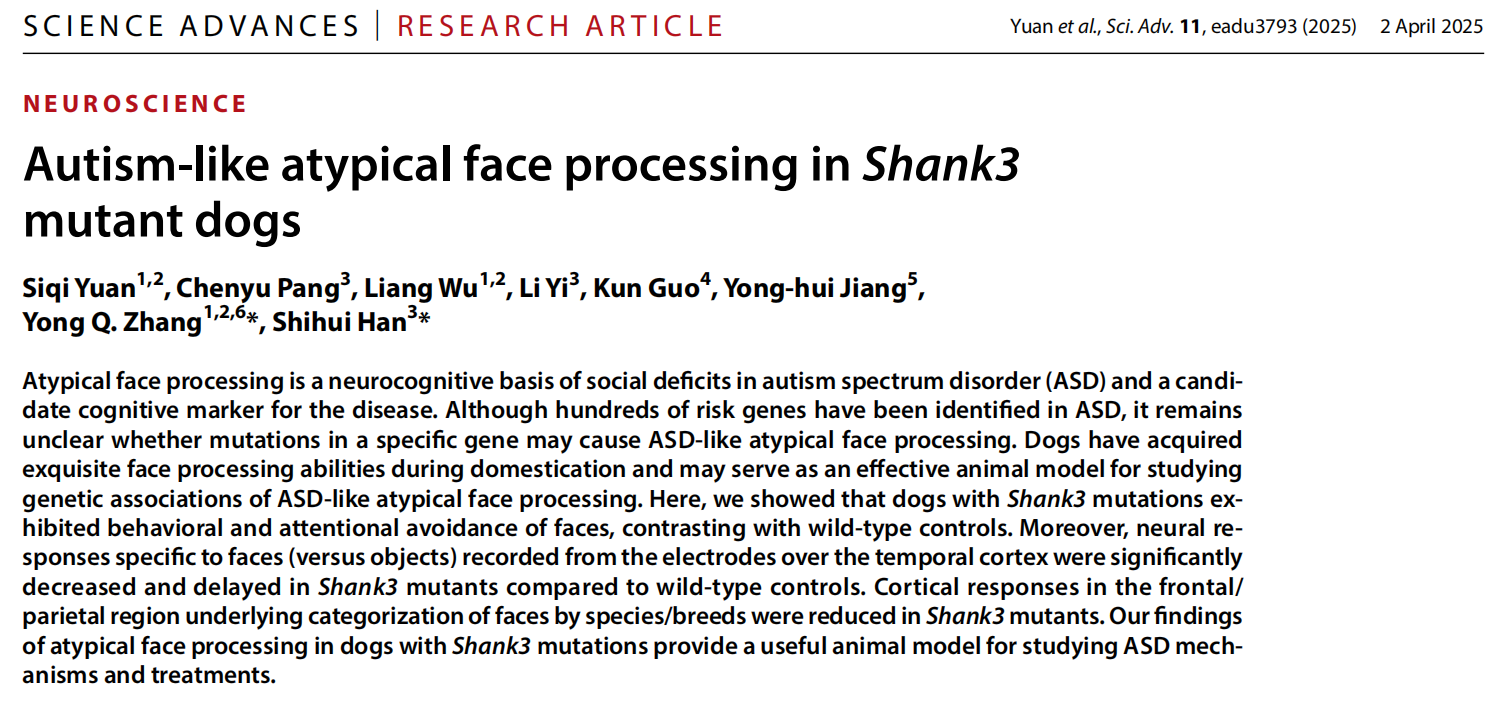Prof. Shihui Han: Autism-like atypical face processing in Shank3 mutant dogs

Abstract
Atypical face processing is a neurocognitive basis of social deficits in autism spectrum disorder (ASD) and a candidate cognitive marker for the disease. Although hundreds of risk genes have been identified in ASD, it remains unclear whether mutations in a specific gene may cause ASD-like atypical face processing. Dogs have acquired exquisite face processing abilities during domestication and may serve as an effective animal model for studying genetic associations of ASD-like atypical face processing. Here, we showed that dogs with Shank3 mutations exhibited behavioral and attentional avoidance of faces, contrasting with wild-type controls. Moreover, neural responses specific to faces (versus objects) recorded from the electrodes over the temporal cortex were significantly decreased and delayed in Shank3 mutants compared to wild-type controls. Cortical responses in the frontal/parietal region underlying categorization of faces by species/breeds were reduced in Shank3 mutants. Our findings of atypical face processing in dogs with Shank3 mutations provide a useful animal model for studying ASD mechanisms and treatments.
Original Link: DOI: 10.1126/sciadv.adu3793